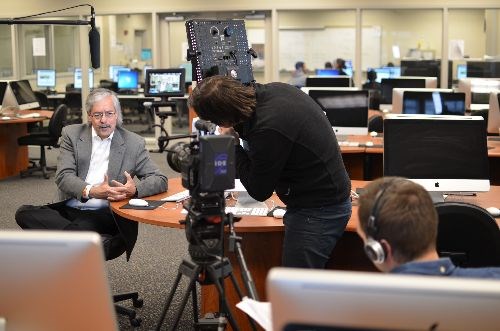A Look Ahead at Hyperspecialization and the Talent Mismatch
In 2013, dialogue was launched with the manufacturing industry that focused on macro trends affecting the future of manufacturing. This was supported by a trend report and a video highlighting the effects of urbanization, sustainability, new materials and new technology.

In 2013, Sandvik Coromant launched a dialogue with the manufacturing industry focusing on macro trends affecting the future of manufacturing. This was supported by a trend report and a video highlighting the effects of urbanization, sustainability, new materials and new technology.
Here is a look at competence-related trends, such as the upcoming skills gap and talent mismatch, which indicate that the world may lack up to 85 million skilled workers by the year 2020. Other topics include hyperspecialization and the way we will educate people in the future.
According to Klas Forsström President of Sandvik Coromant:
With the baby boom generation going into retirement and taking their knowledge with them we are faced with a number of new challenges. This also means that knowledge and skills will become a much more scarce resource in the future. Despite the fact that we are facing the largest new generation group ever, there is a problem. Their profile is not very well matched with the competence needs of the industry. This will force companies to change the way they construct their work. It will also change the way we think about education.
In the future manufacturers will not be able to have all competencies in-house. This opens up new ways of working and cooperating. Previously, outsourcing was done as a matter of cost. In the future outsourcing will be a means to access required skills. Work as such will be constructed differently by distributing it to specialists around the world and then bringing it back together again for delivery.
In order to meet the needs of skilled specialists, universities and education institutions as we know them need to change their way of working. In the future there is a much greater need for learning on demand in terms of providing the right training, to the right people, at the right place and at the right time. We are moving from linear learning to modular learning.
Related Content
-
VIDEO: Why Is Sustainability Important to Mold Builders
Marta Orozco with DME shares ways mold builders can be a part of building a more sustainable future.
-
Internal and External Factors Continue to Impact U.S. Moldmaking
Sustainable growth remains in the forecast as economic conditions continue to progress.
-
Thermal Management, Modular Mold Systems, IoT Connectivity Demonstrated at K Show
Three new platforms displayed by DME target reduced energy consumption, costs through boosted productivity and are more sustainable for part and mold designers, molder and toolmakers.














.jpg;maxWidth=300;quality=90)

